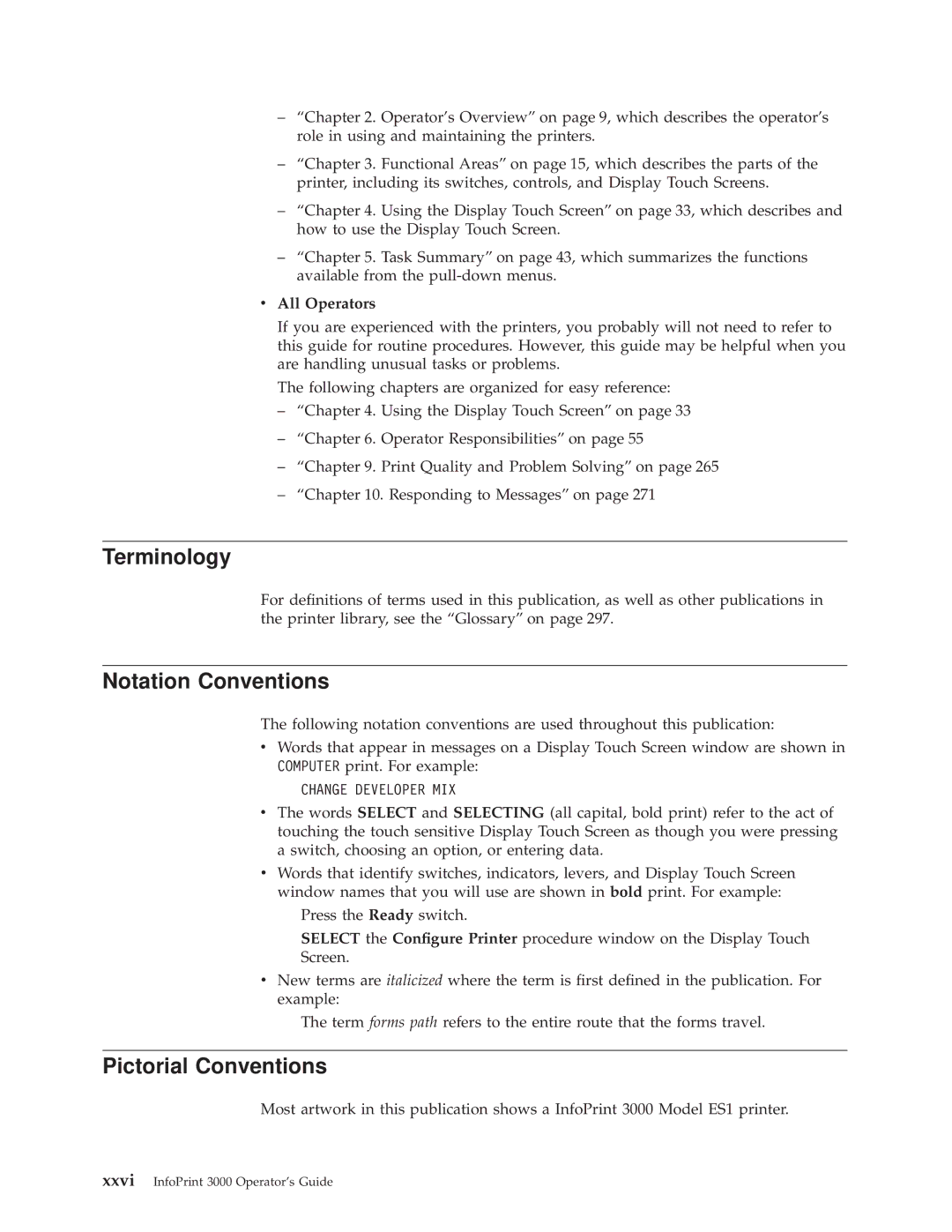
±ªChapter 2. Operator's Overviewº on page 9, which describes the operator's role in using and maintaining the printers.
±ªChapter 3. Functional Areasº on page 15, which describes the parts of the printer, including its switches, controls, and Display Touch Screens.
±ªChapter 4. Using the Display Touch Screenº on page 33, which describes and how to use the Display Touch Screen.
±ªChapter 5. Task Summaryº on page 43, which summarizes the functions available from the
v All Operators
If you are experienced with the printers, you probably will not need to refer to this guide for routine procedures. However, this guide may be helpful when you are handling unusual tasks or problems.
The following chapters are organized for easy reference:
±ªChapter 4. Using the Display Touch Screenº on page 33
±ªChapter 6. Operator Responsibilitiesº on page 55
±ªChapter 9. Print Quality and Problem Solvingº on page 265
±ªChapter 10. Responding to Messagesº on page 271
Terminology
For de®nitions of terms used in this publication, as well as other publications in the printer library, see the ªGlossaryº on page 297.
Notation Conventions
The following notation conventions are used throughout this publication:
vWords that appear in messages on a Display Touch Screen window are shown in COMPUTER print. For example:
CHANGE DEVELOPER MIX
vThe words SELECT and SELECTING (all capital, bold print) refer to the act of touching the touch sensitive Display Touch Screen as though you were pressing a switch, choosing an option, or entering data.
vWords that identify switches, indicators, levers, and Display Touch Screen window names that you will use are shown in bold print. For example:
Press the Ready switch.
SELECT the Con®gure Printer procedure window on the Display Touch
Screen.
vNew terms are italicized where the term is ®rst de®ned in the publication. For example:
The term forms path refers to the entire route that the forms travel.
Pictorial Conventions
Most artwork in this publication shows a InfoPrint 3000 Model ES1 printer.
xxviInfoPrint 3000 Operator's Guide
